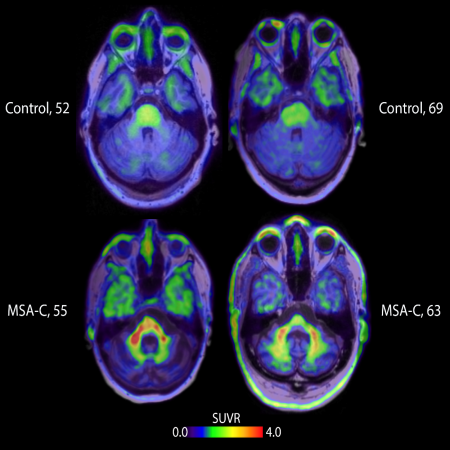Minute Insight: First Live Images Of Alpha-Synuclein Raise Hope For Improved Neurological Diagnostics
Executive Summary
Advancements in imaging technology may bring medtech and pharma closer together and lead to better drugs for neurological conditions.
AC Immune, a Lausanne, Switzerland-based biotech company, has obtained the first non-invasive images of pathological alpha-synuclein in human brain tissue, which could lead to better therapies for neurodegenerative disease.
Alpha-synuclein is a soluble neuronal protein that is present under normal conditions as it regulates synaptic vesicle trafficking. Trafficking is affected in many neurological conditions including Alzheimer’s and Parkinson’s disease and the disrupting agent may be aggregates of alpha-synuclein, otherwise known as synucleinopathies, or fibrils.
These fibrils have a wide range of damaging effects, with the most major being synaptic impairment – the protein builds up, and blocks neurons from working. Also, misfolded alpha-synuclein may act as a prion, causing multiple system atrophy (MSA), which typically kills patients six to 10 years following diagnosis.
Until now, the only reliable way of checking for these build-ups has been via postmortem. Earlier attempts to image the build-ups have not worked as they have similar attenuation constants and proton densities to surrounding tissues, making computed tomography and magnetic resonance imaging ineffective.
A selective tracer for these protein accumulations had not been found, rendering positron emission tomography (PET) scans ineffective. PET scans are used to diagnose Parkinson’s by imaging damage to dopaminergic systems, but they have not been able to image the synucleinopathies.
 PET scans showing the difference between healthy controls, and patients with multiple system atrophy
AC Immune
PET scans showing the difference between healthy controls, and patients with multiple system atrophy
AC Immune
In a presentation at this years’ AD/PD International Conference on Alzheimer's and Parkinson's Diseases, researchers from AC Immune revealed the results of a proof-of-concept study of a new positron emission tomography (PET) imaging tracer.
The clinical trial of AC Immune’s PET tracer was conducted at Lund University and Skåne University Hospital in Sweden, and received grant support from the Michael J. Fox Foundation for Parkinson’s Research.
In the presentation, AC Immune researcher Francesca Capotosti presented data showing the low binding affinity (Kd) and equilibrium dissociation constant values of the new PET tracer. The binding affinities were measured to be in the range of 8-30nM, with the equilibrium dissociation constant (Bmax/Kd ratios) being between 5 and 10.
Therefore, the tracer was effective at targeting and binding to the alpha synuclein deposits which will make it easy to calculate the originating locations of the emitted positrons and build clear images of various different synucleinopathies, according to Capotosti.
“The results represent great clinical progress in the quest to provide a diagnostic tool for patients suffering from multiple system atrophy and potentially other a-synucleinopathies,” Oskar Hansson, the trial’s lead investigator from Skåne University, said.
Taking images of the protein in live test subjects may lead to new and more effective methods of differentiating patients’ disease, Hansson said. This could open a new avenue of companion diagnostics for neurologic drugs. So far, companion diagnostics are mostly used for oncology drugs.
Insight: AC Immune's announcement is significant primarily because of the close connection between alpha-synuclein and various pathologies within the brain. Parkinson’s, Lewy body dementia and Alzheimer’s are all tricky-to-diagnose diseases linked to increased aggregations of the protein. Earlier diagnosis has major positive implications on patient quality of life, and may improve the efficacy of new neurologic drugs.
